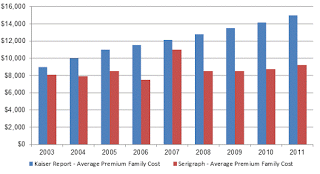There are a few different brands of plant-based meats on the market, from Beyond to Impossible and many more, and recently, they’ve been taking the world by storm — and not just the vegan world, either. So many people have been trying plant-based meats as a healthier, more environmentally friendly alternative to their standard burger or chicken nugget, but some are more than a little skeptical, both on the vegan end as well as the meat-eater side of things.
Between conscious vegans and conscious meat eaters, there are a lot of questions to be asked about plant-based meat substitutes. Everything from the ingredients involved in plant-based meat substitutes to the overall health of plant-based diets, there’s a lot to explore about plant-based meats and the health and wellness conversation around them. So are plant-based meats the healthier option? Or are they even worse than conventional animal products?
Is Meat Healthy?
There’s a lot of debate surrounding the healthiest way to eat, and it’s doubtful that it will go away anytime soon. While many people maintain that meat is a part of a healthy, balanced diet and a great source of protein, many experts aren’t so sure. Recent studies have shown that meat consumption increases the risk of heart problems, cancer, type two diabetes, blood vessel diseases and even premature death. Practically, meat is not as nutrient-dense as other foods like fruits, vegetables and even grains.
This is particularly relevant when you consider the fact that meat eaters comprise the majority of the consumer base for plant-based meat alternatives. In fact, 86% of plant-based meat consumers identify as regular meat-eaters. Therefore, plant-based meat is being used as a direct meat substitute, not as an addition to otherwise plant-sourced diets.
What Are Plant-Based Meats Even Made of?
While each plant-based meat product and company have their own recipe and formula, some of the most popular ingredients in plant-based meat substitutes are things like soy protein, pea protein, coconut oil, sunflower oil, canola oil and other processed ingredients. While they tend not to be the most nutrient-dense, some would say that they’re no worse for you than standard meat products. Some of these crops are also chosen because they’re more durable in cold and harsh weather conditions than other crops. Really, it depends on personal preference and knowing the ingredients for yourself.
Why Plant-Based Diets Work
When discussing whether plant-based meats are healthy, one of the logical questions to ask first is whether plant-based diets are healthy. However, that tends to be a tricky question depending on who you ask. Most experts will tell you that vegan and vegetarian diets are healthy and appropriate for all stages of life. This is because they are rich in nutrients, vitamins and minerals that help people thrive.
However, one of the primary reasons why plant-based diets are healthy and work so well is the consumption of whole plant foods, which involves eating healthy, entire plant foods rather than processed foods, which isn’t what plant-based meats are. Since plant-based meats aren’t as nutrient-dense as whole plant foods, they aren’t as healthy as salads, fruits and grains. However, they can be fine in moderation, like many other foods.
Is Plant-Based Meat Healthy?
In conclusion, there is a lot of debate about whether plant-based meats are healthy. While each individual person needs to decide for themselves whether they feel comfortable eating plant-based meat substitutes, the consensus tends to be that while plant-based meats aren’t the healthiest food in the world, they aren’t any worse for you than processed meat products already on the market.
Plant-based meats, just like many vegan diets, are focused on the environmental impact. So if you’re looking for a way to make your meat consumption more environmentally friendly, plant-based meat might be your best option. Have you ever tried plant-based meat substitutes? What’s your take?










